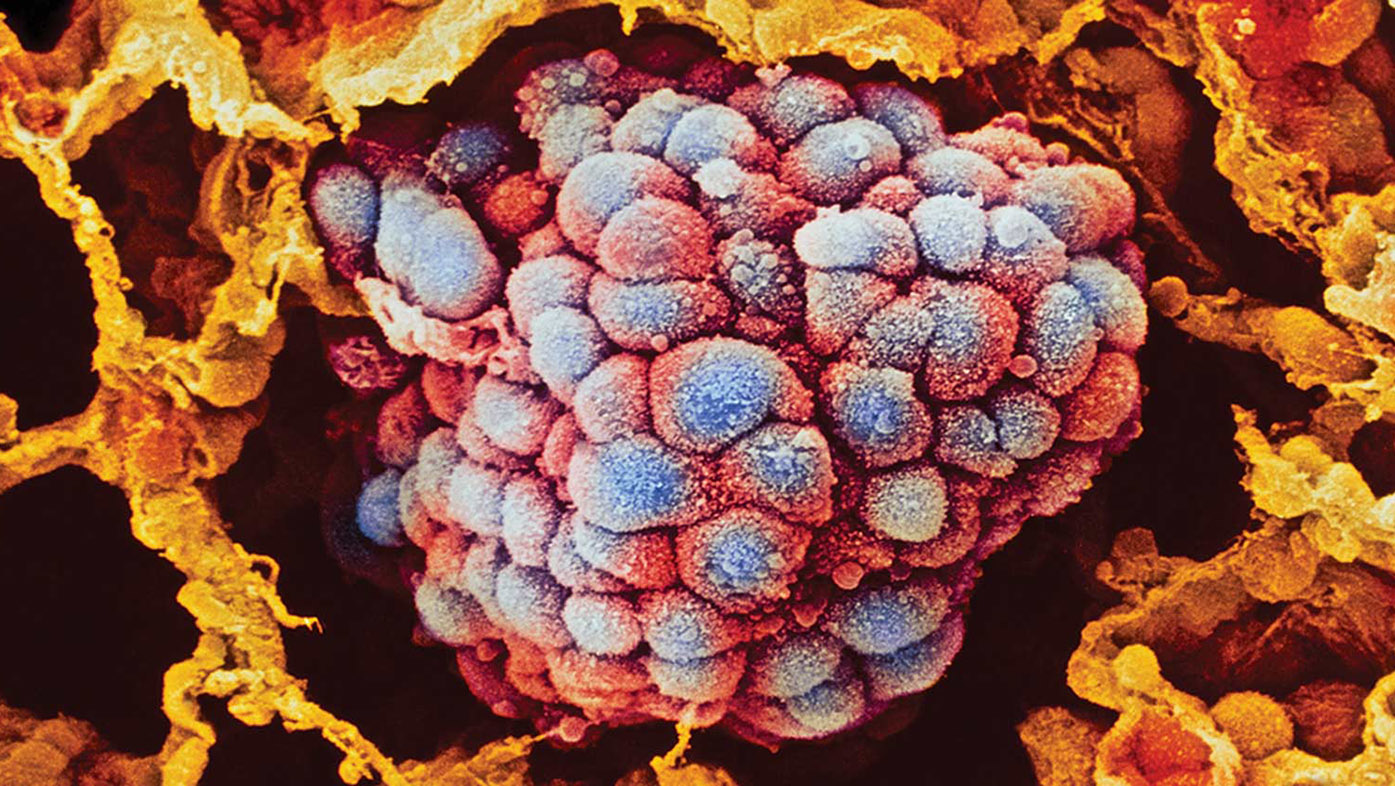Researching lung cancer treatments to give more patients better outcomes
Decades ago, a person diagnosed with lung cancer had about an 11% chance of surviving for five years after diagnosis, and for some patients it was even less time. To a person living with cancer or a loved one, those are odds nobody wants to hear. In the pharmaceutical industry, these are numbers we have long been working to change.
As drug developers, we work to help advance science and medicine with the goal of improving outcomes for these patients. Many of us have been touched by cancer personally; many of our colleagues are working tirelessly for our mothers, uncles, or best friends.
More than two million people are diagnosed with lung cancer each year and it is the leading cause of cancer-related death worldwide. Non-small cell lung cancer (NSCLC) makes up 80% to 85% of all lung cancer cases. It is an aggressive disease, and people living with NSCLC face a pressing medical need.
From pioneering the first immune checkpoint inhibitor, to now standing as the only company with three approved checkpoint inhibitors across various cancers, Bristol Myers Squibb has a history of developing medicines that have made long-term survival a possibility for many people. This innovation extends to metastatic NSCLC, where we have the longest reported follow-up of any Phase 3 lung cancer trial with an immunotherapy. These revolutionary immunotherapies allow a patient's own immune system to detect and fight the cancer more effectively.
In recent years, new cases of lung cancer, as well as lung cancer deaths, have been declining, in part due to new treatment advances, continued education around the dangers of smoking and occupational hazards, and better screening and early detection. However, while we continue to live in an era of exciting advancements, there is still much more work to be done.
Ongoing clinical trials, including those conducted by Bristol Myers Squibb, aim for better clinical outcomes by working alongside people living with NSCLC. With our heritage of transformative science in the treatment of thoracic cancers, we are well positioned to address unmet needs and to provide better options for patients across stages of disease.
Abderrahim Oukessou, vice president and global program lead of Lung, Head & Neck, and Joseph Fiore, executive director and global program lead of Oncology Development
Targeted therapies
NSCLC is not one disease, but rather a collection of different diseases, which means that each person’s diagnosis is unique and may have different treatment needs. For example, a person living with NSCLC could have a mutation that may be targeted with specific treatments.
Targeted therapies have been approved for several unique genetic mutations, but ultimately, resistance to these treatments may occur as the tumor adapts, and new innovative treatment options are needed. Bristol Myers Squibb is currently studying ROS1 fusions, which are rare but serious occurrences in NSCLC that often lead to rapid growth of tumor cells that can spread to the brain and spine. We are committed to helping bring the next generation of medicines to these people with targetable mutations and addressing treatment resistance for patients with ROS1 fusions and other types of NSCLC.
Working together to help patients
Unfortunately, as any oncologist knows, cancer is smart. Every time new treatments emerge to suppress tumor growth, cancer cells often adapt with new mechanisms to bypass those treatments. Unlocking mechanisms of resistance will be key to ultimately providing new effective therapies for patients with lung cancer.
We are working alongside patients, healthcare providers, advocacy organizations and others across the cancer community to develop options tailored to patients’ specific disease and tumor biology, and to expand treatment options to reach patients across disease stages and settings. Knowing this, collaborations between industry and academia are already underway, with the goal of addressing resistance, learning more about the disease, and offering patients improved treatment options.
A cancer diagnosis can be devastating to a patient and their loved ones. And in the case of NSCLC, it may often become a lifelong struggle between treatments and emerging tumor resistance. To keep ahead of cancer, patients count on new treatments to always be in development.
This is why patients are the force behind our work and the reason we enter the building each day. We are driven by and humbled to know that, in this industry, we are playing a part in developing therapies for people living with cancer, and that these treatments have the potential to change lives.
Subscribe to Our stories alerts
Beyond just relevant information about Bristol Myers Squibb's therapeutic areas and innovation, Our stories offer a window into the work our employees do every day for patients.
About Bristol Myers Squibb
Bristol Myers Squibb is a global biopharmaceutical company whose mission is to discover, develop and deliver innovative medicines that help patients prevail over serious diseases. As global citizens, we work sustainably and responsibly to create a positive impact in the communities where we live and work.



